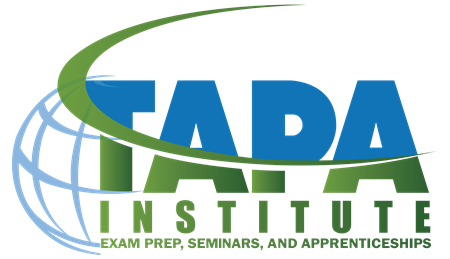How Stress Reduction Sessions Can Improve Exam Performance
In today's competitive academic environment, students are often pressured to achieve high grades, which can lead to increased stress levels, hinder effective studying, and result in poor exam performance. While conventional study methods are important, managing the psychological and emotional aspects of exam preparation is equally crucial. Mindfulness exercises, such as those offered through the TAPA Institute, can help students lower their stress levels, improve focus, and ultimately achieve better exam results.
The Effects of Stress on Performance
Stress is a normal response to handling specific tasks or challenging situations. However, when stress becomes overwhelming, it can negatively affect both psychological and physical well-being. In the context of exams, stress often leads to anxiety, difficulty concentrating, sleep disturbances, and physical symptoms like headaches or stomach aches. These issues not only interfere with studying but can also impair memory and cognitive function during exams.
Stress is known to disrupt memory and cognition, both of which are critical during an exam. Additionally, stress can create a negative feedback loop: poor performance due to stress leads to more stress, which in turn results in further poor performance. Breaking this cycle is essential for students to reach their full potential, and stress reduction sessions are an effective way to achieve this.
How Stress Reduction Sessions Operate
Stress reduction sessions, such as those offered by Dr. Sabine Charles and her team at the TAPA Institute, are designed to help individuals cope with stress. These sessions combine psychological techniques with physical relaxation methods to address the root causes of stress. They include mindfulness, relaxation exercises, and personalized coaching.
Mindfulness and Relaxation Techniques: Mindfulness encourages individuals to focus on the present moment, helping them become aware of their emotions and thoughts without being overwhelmed by them. In stress reduction sessions, mindfulness exercises, such as deep breathing and muscle relaxation, help students release physical tension and calm their minds, reducing the impact of stress.
Personalized Coaching: A key component of the TAPA Institute's stress reduction program is one-on-one coaching. Every student experiences stress differently and faces unique stressors. Personalized coaching allows an expert to assess each student’s specific stressors and offer tailored strategies to address them. This individualized attention provides crucial support, enabling students to manage their stress and perform better in exams.
Advantages of stress reduction sessions for better exam performance
Incorporating stress management into exam preparation offers several benefits that can significantly enhance a student's performance:
Improved Focus and Concentration: Stress management techniques help students clear their minds and focus more effectively on their studies. This improved concentration allows them to better understand and retain academic material, enabling them to approach exams with clarity and confidence.
Enhanced Problem-Solving Skills: By reducing stress, students are able to think more clearly and systematically. This improved mental state enhances their ability to solve problems and make decisions during exams, resulting in better performance.
Overall Well-Being: Stress reduction sessions benefit not only exam performance but also overall health. Practices like mindfulness and relaxation combat anxiety, improve sleep, and enhance coping abilities. These benefits ensure that students are physically, mentally, and emotionally prepared to face the challenges of exam periods.
Final Thoughts
While stress is a natural part of the exam process, it doesn't have to hinder performance. By participating in stress reduction sessions, students gain the tools they need to manage stress, improve focus, and excel in exams. Dr. Sabine Charles at the TAPA Institute offers a comprehensive approach that combines mindfulness, relaxation therapy, and personalized coaching to empower students academically.
In today’s increasingly competitive academic landscape, the need for stress management support is not only wise—it’s essential. With the right strategies in place, students can overcome exam stress and achieve their full potential.

